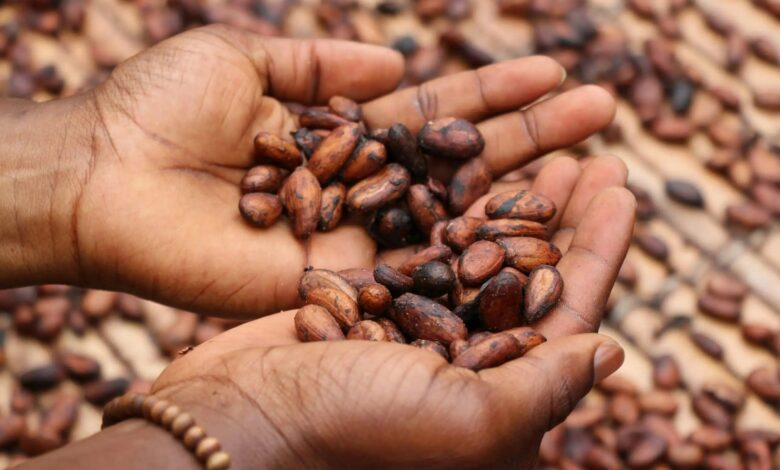Chocolate industry must continue to prioritise sustainability fair labour practices – EcoCare Ghana

EcoCare Ghana, a rights-based campaign and advocacy organisation, has urged the chocolate industry to continue to prioritise sustainability, fair labour practices, and environmental conservation.
This includes ensuring fair compensation to farmers, promoting responsible sourcing practices, reducing pesticide use, and safeguarding against any child or forced labour and deforestation.
Legislations such as the European Union Deforestation Regulation (EUDR) and consumer awareness, which has led to demand for ‘better’ chocolate is driving positive change in the industry.
Mr Obed Owusu-Addai, the Managing Campaigner, EcoCare Ghana, said this at a press briefing in Accra on Friday to launch the 5th Edition of the Chocolate Scorecard, on the theme: “Making Sure the Chocolate You Eat is a Good Chocolate”.
The Chocolate Scorecard ranks and grades companies on key sustainability issues affecting the cocoa value-chain and to promote transparency, accountability, and responsible practices within the industry.
The companies are scored based on traceability and transparency, living income for farmers, child labour, deforestation and climate change, agroforestry and pesticides.
Mr Owusu-Addai said the 5th Edition of the Chocolate Scorecard revealed a significant improvement in the industry, but key challenges such as farmer poverty remained unaddressed.
However, the chocolate industry had the resources to address those challenges, based on its strength and lucrativeness.
He said forecasted revenue growth stood at 5.6 per cent, surpassing global economic growth estimates of 2.6 per cent, in 2024, expected to generate around USD254 billion.
The Managing Campaigner said it was encouraging to see the majority of respondent companies recognising a living income as a basic human right, though only six companies were paying 100 per cent to their farmers as Living Income Reference Price.
Improvements in traceability were evident in response to EU Deforestation Regulations (EUDR) yet achieving full EUDR compliance remained a ‘work in progress’, he said.
The companies were increasingly aware of their responsibility to ensure that farmers got decent incomes from cocoa, but still too many farmers remained in poverty, Mr Owusu-Addai said, and that without additional financial support, that would continue.
The recently passed Cooperate Sustainability Due Diligence Directive by the EU has now recognised Living Income as a human right issue, compeling industries to begin realigning their purchasing practices to reflect the new paradigm.
Child labour responses were increasing in effectiveness mainly due to the lack of scale of programmes, hence all stakeholders, including producers, governments and the industry must work together towards a common goal targeting wider coverage and inclusivity, he said.
Environmental initiatives such as climate targets, ending deforestation and use of agroforestry were gaining momentum, partly due to emerging legislation requiring that companies seriously cared for the planet.
“However, in Ghana issues such as tree and land tenure are still posing limitations for uptake of agroforestry. There is the need for legislative and policy realignment to support the implementation of agroforestry initiatives,” Mr Owusu –Addai said.
He urged governments, NGOs, companies and consumers to work together to ensure that farmers were supported to meet the requirements for EUDR compliance and were compensated fairly for their efforts.
He called for child labour interventions to be scaled up and to eradicate it in all supply chains, with enhanced traceability and focus on addressing the root causes such as poverty.





